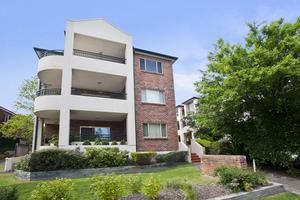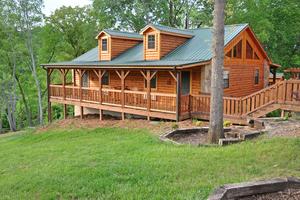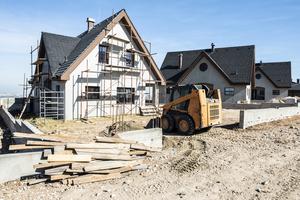Home & Leisure
/ArcaMax

2025 personal finance resolutions
Every year, Ilyce and Sam offer their readers New Year’s resolutions for homebuyers, home sellers and their personal finances. These are their 2025 personal finance resolutions.
Last year, we asked our readers whether we were in a Silent Depression or a booming economy. Clearly, most Americans believe the economy has been in a tailspin. Or, ...Read more

2025 real estate trends, predictions
Every year, Ilyce and Sam offer their readers New Year’s resolutions for homebuyers, sellers and their personal finances. This year, they’re adding some trends and predictions for 2025.
As we move into the beginning of the second quarter of the 21st century, it’s interesting to see how real estate (and the world) has changed.
Twenty-five...Read more

2025 home seller resolutions
Every year, Ilyce and Sam offer their readers New Year’s resolutions for homebuyers, sellers and their personal finances. These are their 2025 home seller resolutions.
Buyers had a little more purchasing power in 2024, but two headwinds remained: Roughly 85% of homeowners carry interest rates below 6%, and there are not enough homes to buy.
...Read more

Spouse questions lawyer’s fees after husband’s passing
Q: My husband died a couple months ago. He had a living trust. When he died, I asked a friend for the name of a lawyer to assist me to deal with his estate issues. The lawyer asked for a retainer of $5,000, and he charges $400 per hour.
I did not realize that our condo was titled as tenants in common rather than joint tenants. We had to open up...Read more

Continuing the discussion about parents sharing assets with their children
We recently received several questions regarding joint accounts and the co-ownership of a home and other assets. Both of our correspondents demonstrate why you need to be careful when deciding how to hold title to your real estate and non-real estate assets. That’s especially true if you’re thinking of adding a child to the asset’s title. ...Read more

Reader suggests selling rental property using 1031 exchange, buying a DST
Q: I read your recent response to a person who inquired about selling rental properties they own. While your response was factual, you made no mention of the very viable solution of selling the properties and through a 1031 exchange reinvesting the gain in other like kind properties. This could also include Delaware Statutory Trusts (DST) ...Read more

Siblings squabble over inheritance
Q: My mother told me directly that the loans my sisters and brother received would be taken out of their inheritance. My mother passed away 10 years ago. I just found out that my siblings never repaid those loans.
We have never been close, so out of nastiness shown by them to me I asked them to send me my share of their unpaid loans. Will I get...Read more

Reader suggests more options for parents helping adult children with mortgage loans
Q: I am a faithful reader of your Real Estate Matters column every Sunday. I am moved to comment on your advice to the retiree who was trying to be a co-signer on his daughter’s mortgage. While the retiree’s query revolved around the dangers of co-signing, there could be several other much less costly and intrusive options.
Maybe the father...Read more

Reader considers buying condo building to house friends and family
Q: I would love to buy one entire condo building (not the whole complex) and have all my friends and family live “together” with me. How would I go about doing that?
A: It’s nice of you to think about having all of your friends and family live in one condominium building. But, do all of your friends and family actually want to live in the...Read more

Florida homeowner fed up with HOA but hesitant to move
Q: I am writing to you in response to the article I read titled “HOA resident offers potential solutions to board member shortage.” I have to agree with the article. Being on the board is dangerous these days. However, I have to admit that I am one of the voices speaking out at board meetings to keep the heat on the current administration...Read more

Condo owner believes association is not compliant with state law
Q: We live in a high-rise in downtown Chicago. Although the building is well maintained, there are issues with transparency and perceived conflicts with state law and our association’s declaration and bylaws. We are wondering if our interpretation is incorrect. Every time we ask, the management company simply says that the association is ...Read more

Who has to file the Beneficial Ownership Information report?
Q: I am the secretary of the board of directors of a homeowners association. Our management company is telling us that we have to file the Beneficial Ownership Information report required by the U.S. Treasury Department. We are a not-for-profit entity, and the board is volunteer. Is this really required by the U.S. Treasury?
A: If your ...Read more

Can your association’s management company require all property owners carry homeowners insurance?
Q: I read your column in our local Florida newspaper. I live in a community with all villas which are attached to one another. I recently got an email from our community’s management company that said homeowners insurance was required on each property.
I have lived in the development for over 20 years and never gotten this before. They have ...Read more

After refinance homeowner discovers incorrect loan maturity date once mortgage sold to new lender
Q: My husband and I refinanced our home in 2010. Years later, our mortgage was sold to another lender. I was slow on this but I noticed that the maturity date of the new account is showing eight years beyond when our original mortgage was to end.
I’ve tried to straighten this out with the new lender, but unfortunately I didn’t receive any ...Read more

Homeowner wants to evict brother from apartment, where he is living rent-free
Q: We own a house that has been converted into two apartments. My brother has been living in one of them for 13 years. He has never paid any rent. He used to take care of the place, collect rent from the other apartment, do minor repairs, etc. But we can no longer rely on him to do anything. We have actually been fined by the local housing ...Read more

When will you receive a 1099-S for property sale?
Q: I just sold my house and moved into a 55-plus community. I paid an entrance fee to the community and now pay rent on my apartment every month.
I want to be prepared for filing my 2024 taxes. My understanding is I need a 1099-S form for my house sale. I’ve asked my real estate agent where I get this document, and he didn’t know. I did an ...Read more

How does the beneficiary receive the title to a home in revocable trust?
Q: I watched one of your videos about paying off your mortgage and I have a question. I have a living revocable trust and my home has been titled in the name of the trust. My mortgage will be paid off soon.
Let’s say I die. and at that time I own the house free and clear. Does the beneficiary of the trust then go to an attorney to transfer ...Read more

Understanding the sale of vacation homes
Q: We are selling a vacation home property and were told that we should put some of the money from the sale of the property into a 1031 to avoid paying a 28% tax on the sale. We were wondering what would happen to the amount of capital gains gift tax if we gifted some of the sale money at closing to our two sons as part of their inheritance.
A:...Read more

Parent weighs pros and cons of sharing assets with daughter
Q: Could you explain the pros and cons of having joint financial accounts with a daughter and owning my home with her as well? My husband has passed away. I have a will and other needed documents.
A: We’re sorry for your loss. We understand how having joint financial accounts and assets feels like everything will be easier after you die. ...Read more

Home sales worsen due to inventory, interest rates
This week, the National Association of Realtors announced that 2024 would likely be an even worse year for home sales than 2023. It could wind up as the worst since the late 1990s.
Existing home sales fell 1% in September to a seasonally adjusted rate of 3.84 million. That number is 3.5% lower than a year ago. Median existing home prices ...Read more




























